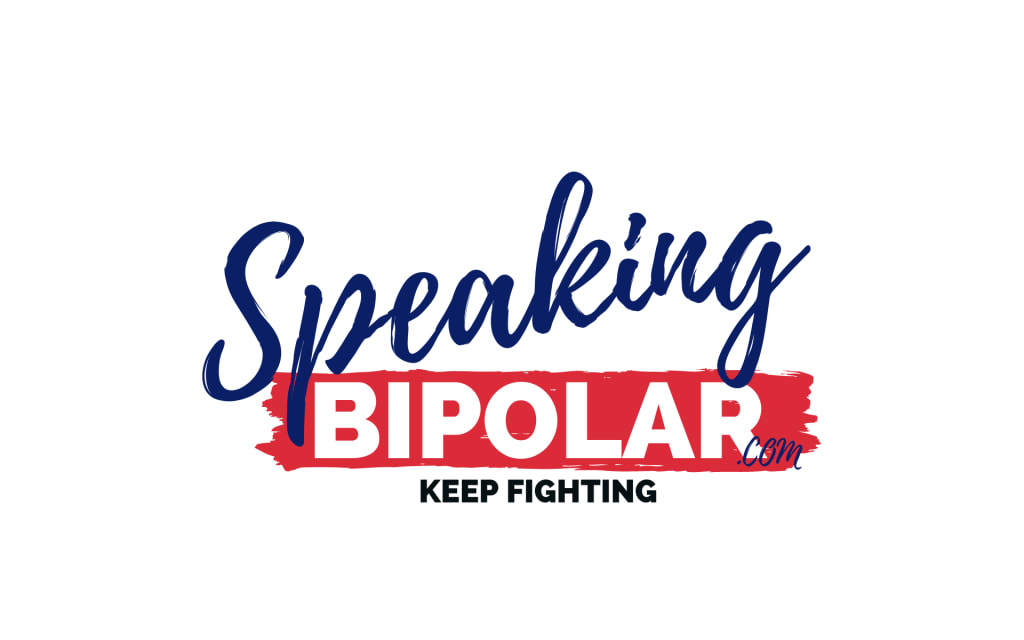The Pain in My Heart Pushed Me to Start the Speaking Bipolar Site
Grieving two suicides helped me share my authentic self with the world.

“And he's bipolar. You know what that means.”
My boss was 10 minutes into his gossip fest. Today's victim was one of his oldest friends. I heard a litany of all the things his friend had done wrong, and all the poor choices he had made. My boss boasted of their 20-year friendship, but I couldn't help but wonder if it really was a friendship.
My boss was a good man, and not someone who generally downgraded people, but he was prone to stereotypes. His prejudice was especially evident when talking about mental illness.
Up until that day, he was unaware of my mental health struggles. Even though I was diagnosed with bipolar in 1995, it was 11 years before I told an employer, and another 12 years after that before I came out publicly with my mental health history.
“You know I'm bipolar,” I said to my boss, bringing the conversation to a screeching halt.
His eyes widened as his face lost all its color.
“I didn't mean,” he started.
“It's okay,” I laughed. I wanted to let him off the hook, though I know now that should have been a teaching moment.
“I've made some bad choices myself,” I continued. “I just wanted you to know before you said something you’d regret.”
He tried to apologize, but I just put up my hand. I wasn’t comfortable discussing my mental health, so I just wanted our conversation to end.

Losing Friends
Fast forward to 2018, and nearly a dozen friends’ suicides later, and I finally found the courage to speak up. I was ready to come out of the bipolar closet and tell my truth.
There were two suicides that were especially painful. One was my sister's ex-husband. While he and I were never close, I did care about and respect him. He was a good man and a caring father. To learn that he had chosen to take his own life was devastating.
Then, another one of my friends committed suicide. It was someone my age, someone I knew had been fighting mental illness for years. I tried to broach the subject with him from time to time, but he was never willing to have the conversation. I never pushed for more. I didn't think I needed to interfere.
The morning I got the call that his brother had found him dead, a part of me wasn't surprised. I wanted to be, but I knew the look of desperation in his eyes.
Even though we’d not seen each other for a few months, I knew what was going on in his head those last few days. I've been to that point, too many times. I know that feeling when you think the only option to stop the noise inside your head is to end it all. Someone saved me, but too many people aren't as lucky. No one caught on with my friend in time to save him.
Writing as Therapy
Writing for me is therapy, and my friend’s death made the words flow.
I'd always dreamed of being a writer, but all my hopes and fantasies revolved around fiction. I hated writing essays, and the thought of writing nonfiction held no appeal. Yet, once I started writing about mental illness, I couldn't stop.
I started to tell my story, and the Speaking Bipolar site was born. Now, almost four years later, I have hundreds of online posts on my blog, Medium, Vocal, and more. Most stories center around my experiences with bipolar disorder.
As a society, we don't talk about mental illness enough. We let stigmas run wild, and we reinforce stereotypes by using things like bipolar and schizophrenia as the punchline of jokes.
Neither disorder is funny.
While I choose to use a lot of humor in my writing, mental illness itself is no joke. As many as one in five people with bipolar disorder will take their own life. That’s 20 percent.
If we applied the same ratio to COVID-19, the death toll would be over 51 million. The statistics are devastating, but too often, we're still not talking about it.
I don't know about you, but I don't find that very funny.
Challenging Stigmas
It's especially hard for men to discuss their mental health. There's a toxic belief among many people that mental illness is a form of mental weakness. Others believe it's a lack of faith. Neither idea is correct.
Most mental disorders are caused by chemical imbalances. Mental illness is just that - an illness. It's no different than being diabetic or having heart disease. Something is wrong in the body, and you usually need medicine to fix it.
The harsher stigma on men keeps many from seeking help. When things get too dark, men like my friend and brother-in-law, opt out of life rather than tell anyone how much they’re suffering.
There’s no way to go back and save either man, nor the dozen of other people I’ve lost to this insidious enemy. I can, however, share my story.

Hitting Publish
Trembling inside, I hit publish on my first blog post in February 2018. Sleep was elusive for days as I worried about the response my writing would generate, but the world didn’t end. Each line of text I wrote encouraged me to write more.
I started to tell people in my daily life about my bipolar disorder and chronic anxiety. I shared my most painful experiences, and gave my readers an inside look on what it’s like to live with daily suicidal ideation. Owning that truth in public felt like climbing Everest, but I will never regret it.
Learning to be authentic taught me that I'm not alone. Many people with mental illness fight the same battles every day. Every time we see another suicide in the news, it reinforces a part of our mind that believes death is the best option, but it shouldn’t be that way. Suicide is never the answer. It's a terrifying trend that we need to stop.
Fighting on
As I said, I’m one of the lucky ones. The worst night of my life, my chosen family rescued me. They saw the warning signs before it was too late and drove me to the hospital. Their actions will forever be a daily source of gratitude.
I can't save everyone, but by sharing my story, I might be able to save some. If even one person chooses to keep living because I shared my inner struggles, then any discomfort I feel along the way will be worth it.
I am Scott Ninneman, and I have bipolar disorder. A successful life with mental illness is possible. If I can do it, you can too.
Until next time, keep fighting.
About the Creator
Scott Ninneman
Bipolar for 49 years, chronically ill for 36. The voice behind the Speaking Bipolar blog. Wrestles taxes by day, wrangles words at night. Thinker. TV Addict. Poet. Links: https://speakingbipolar.com/socialmedia







Comments
There are no comments for this story
Be the first to respond and start the conversation.